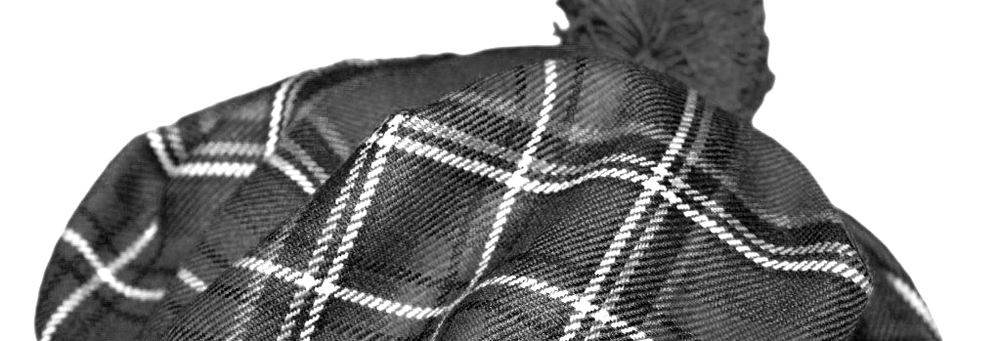I had planned to post a Daily Read tonight, but then I heard the news that three young Muslims had been shot to death in Chapel Hill, North Carolina, by a man who has apparently referred to himself on Facebook as an “anti-theist.” This is a radical form of atheism in which the person goes beyond just not believing in god/gods/religion; instead, anti-theism is explicitly opposed to religions of any kind. According to the several articles I have read about this, the shooting is being linked to a parking dispute between the shooter and the victims, two of whom lived in the same apartment complex as the shooter. Yet, because of the shooter’s outspoken anti-theism and various remarks on his Facebook page in which he expresses extreme antipathy towards religion, and towards fundamentalist Christians and Muslims in particular, the Chapel Hill police department is investigating these murders as a possible hate crime.
I am an atheist. My first reaction when I read that the shooter is an anti-theist was one of dismay. Atheists love to point out that no one has ever been killed in the name of atheism, while millions of people have died in the name of various religions. Already, prominent atheists such as Richard Dawkins are publicly expressing their shock over the shootings and repudiating the notion that it is acceptable to kill someone because of their religious beliefs; at the same time, Dawkins is also tweeting about the parking dispute motive and blaming that instead. And parking may well be the proximate motive for these murders, but I really don’t think it’s smart to remove the shooter’s anti-theism from the equation. Instead, we should acknowledge it. If we don’t, then I fear we fall into the no true Scotsman fallacy. This fallacy occurs when someone makes a proposition such as “No atheist would ever kill a Muslim simply because they are Muslim.” The rejoinder would be “The shooter in Chapel Hill is an atheist who killed Muslims.” The fallacy comes with the response that “No true atheist would kill a Muslim for being Muslim.” In other words, the person attempts to preserve their original argument by saying that this person cannot be defined as an actual atheist. In the case of these murders, atheists can also make the argument that while the shooter may be an anti-theist he is also clearly mentally ill, and that is the real reason for this tragedy. It’s not quite the no true Scotsman fallacy, but it’s the same idea; that is, it proposes that anti-theism can’t truly be the shooter’s motive.
No true Scotsman is often used in a religious context. “No true Christian would murder an abortion doctor”; “No true Muslim would blow people up in the name of Islam”; etc. But whether we want to believe it or not, some people who identify themselves as Christian do commit violence that they attempt to justify with their version of Christianity, and some people who identify themselves as Muslim do commit acts of terror in the name of their version of Islam. They are Christian. They are Muslim. Just as atheists shouldn’t fall for the no true Scotsman fallacy in the case of this anti-theist murderer, so should Christians and Muslims not fall for it when confronted with the bad things that people will do in the name of these religions. And let’s also not get bogged down in bean-counting which religion is worse – horrible things have been done in the name of many religions throughout history and in the present, whether by individuals or entire groups.
I think the problem is that other Christians and Muslims end up getting tarred with the same broad brush when tragedies like this happen – and now the same thing is going to happen to atheists. But just as there are Christians, Muslims, and now, apparently, atheists who commit violence in the name of their beliefs, it is equally true that not every Christian, Muslim, or atheist will commit violence in the name of their beliefs – or even that they support violence by others in the name of their beliefs. We call these people extremists for a reason – because their ideologies are extreme and, by definition, they exist on the far fringes of the overall belief systems they claim to be a part of. People tend to tack from the no true Scotsman fallacy on the one hand when the violence is done in the name of their particular religion, to the equally fallacious conclusion that if one Muslim/Christian/atheist is violent they must all be violent on the other hand.
Personally, I think this shooter very likely is mentally ill. I also think he probably was motivated by a parking dispute – but it’s arguable that the dispute itself may not have existed had his neighbors not been clearly identifiable as Muslim based on the attire of the female victims. I also think it’s likely that mental illness is the culprit for lots of other allegedly religious-motivated crimes, particularly when they are perpetrated by individuals acting alone (and for the record, I don’t think mental illness is involved in the case of organized religious violence a la ISIS or the Lord’s Resistance Army). But let’s not dismiss the man’s anti-theism as irrelevant. If the shooter was motivated by his beliefs then it’s better to acknowledge it than to look silly by trying to deny it. Just as Muslim community leaders speak out to condemn violence perpetrated in the name of Islam, it’s smart for atheists to condemn this shooting, even if mental illness and/or a parking dispute is truly the culprit. No true atheist should do otherwise.

Leave a Reply